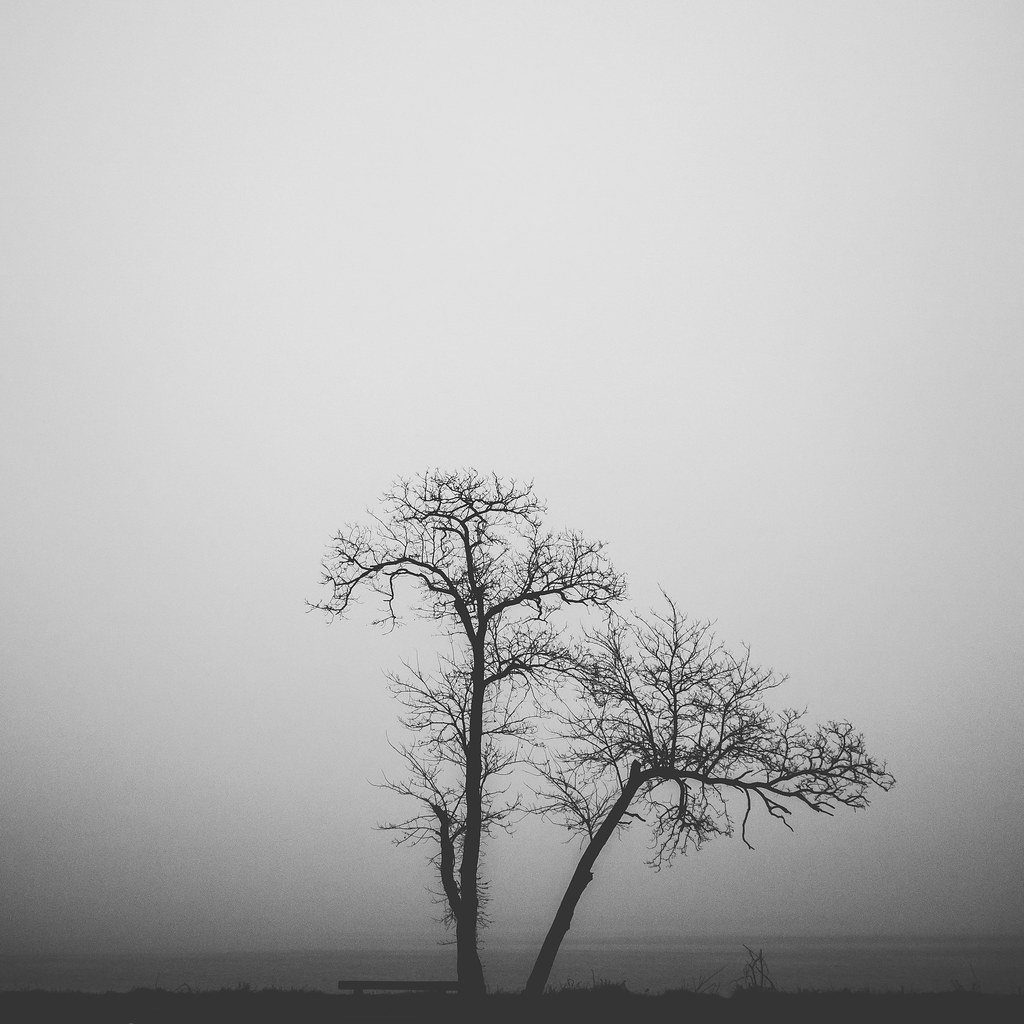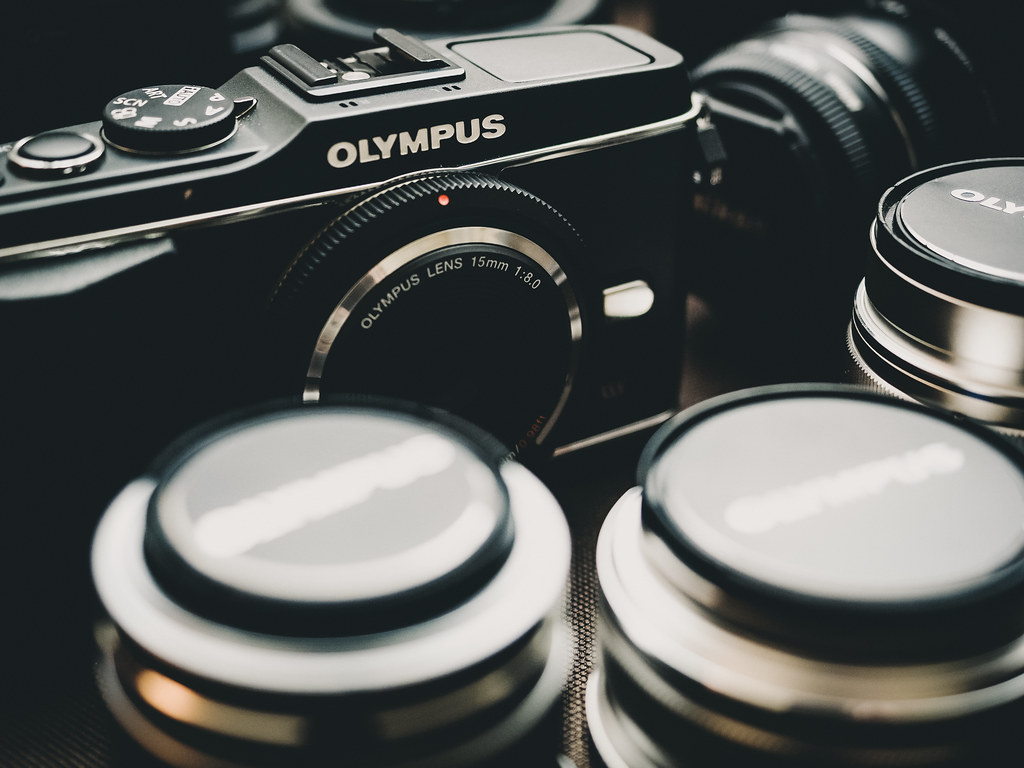Thursday, December 31, 2015
Closing out 2015 on a less angsty note...
I picked up an Olympus PEN E-P5. Got the bugger from Adorama right at the tail end of a great little flash sale they ran on the thing, body-only for $349. With the true update of the series allegedly coming this year, I'm actually pretty okay with dropping $349 to scratch the most incessant itch of wanting a truly transparent-on-my-person small camera body to slap a prime on and just go out, walk around, and focus on experiencing the world rather than worrying about shooting it. Getting back to the whole "kneejerk" thing... see, react, refine, move on. Without a 30 pound backpack and 7 pounds of camera weighing down the living.
Not that anybody likely cares with the body being about 2 years old at this point, but from a technical standpoint it's an E-M5 that actually fits in a pocket (so far as image quality is concerned). The Sony sensor differs a bit from the Panasonic sensor I'm used to in the E-M1, more noise, but it's a kind of noise that likens itself to analog film grain, so it's not noise I'm bothered by, not even at ISO 5000 (I might like the noise profile of the old 16MP Sony sensor even better than that of the 16MP Panasonic sensor in the E-M1...). Firmware updated to v1.6 brings with it the necessary electronic first curtain to subdue shutter-shock inherent to the 5-axis IBIS system, and despite being a bit difficult to steadily hand-hold at slower shutter speeds on account of its size I can still squeeze out reasonably clear 1/4" shots with my palsy hands. For the most part, it's just my old E-P3 with a new sensor and updated processor, so it's iterative and great. Even has the WiFi I've come to love about the OMD line. About the only this it's missing is a Live Composite shooting mode but that's just fine, I have a "big boy camera" for when I'm shooting with deliberate attempt to photograph. Oh, and the autofocus system is the old one from the E-P3, with fewer selectable points and no PD system, but oddly it seems to be more spot on than the newer system when shooting with all AF points available.
It's a holdover to a degree, but a competent one. I'll still likely gush over the coming reimagined PEN model, especially given the track record Olympus has had the past couple years releasing insanely well designed and engineered imagers. Ultimately I'm just happy to have a companion camera right now, because no matter how much I may appreciate the E-M1 it is simply not a camera I want to carry all the time. I suppose the weirder part is that I want to be carrying a camera around all the time. Cell phone doesn't count because reasons.
As an aside, 2015 was a landmark year for my business. Somehow I've managed to keep the income-doubling trend alive and well for 4 years. Pretty sure I've hit my peak potential at this point, though, as there just isn't much more in the way of time I can allocate to photo work. The only way to grow the business is to raise my rates, but I'm not too compelled to do that either. I'm comfortable right now, and if my business workflow is optimized to comfortable efficiency there's no sense in mucking with it.
I'm going to run out to Delaware tonight and do party photography. I recommend you all do the same. But, you know, don't forget to party as well as photograph. :)
Monday, December 28, 2015
I basically hate my camera because it's too goddamn big...
When I bought the E-M1 August of last year it was with the clear intent to use it as a workhorse body, paired with my trusty E-P3 as my "fun time" camera with the trio of primes I'd been using for the same work I bought the E-M1 for. After the battery charger for the E-P3 batteries died, I decided it was worthwhile to retire that camera and just stick with the E-M1 for everything, a single body for all. Over 2015 I've picked up the 40-150mm f/2.8, 7-14mm f/2.8, and 42.5mm f/1.2, basically all the nice higher end glass I could to go along with the E-M1 because price was no longer a factor and why not see just how hard I could push things? In conclusion, I've successfully discovered the best way possible to suffocate all the joy out of photography I possibly could have.
Somewhere along the line I forgot that my methodology, my ethos, has always been an embrace of minimalism, because the kit I'm stuck with right now is anything but minimal. People will give me shit for complaining so much about Micro Four Thirds glass and bodies because they're still diminutive in size compared to their Full Frame counterparts, but that simply highlights how strictly my preference for tools is on the small side. The E-M1 is a great imager, but it's a goddamn tank and I hate carrying it around. No matter what I stick on the front of the thing, it's a big black "LOOK AT ME I'M A PHOTOGRAPHER" attention grabbing brick. I can't attach it to my belt loupes and lazily stroll around the street, it's either in my hand or shoulder strapped and bouncing around like an annoyance.
These PRO zooms are great for working photography, but in personal use I've only ever managed to find problems, and they are problems I've found in my old kit of primes that I never noticed before, and now they are all ruined and dead to me because I've gotten to this point of pickiness that everything offends (except for that 42.5mm Nocticron, which is probably the only lens I haven't felt betrayed by this year). Suddenly ghosting and flare is the bane of my existence at all times, and the PRO zooms are so big I bought a backpack to carry everything in... A BACKPACK. I spent years decrying backpacks for being the bag choice of the idiot who thinks he needs to carry everything, and I have turned into that idiot. I used to be able to toss a couple primes into my Think Tank Retrospective 5 messenger bag and walk out the door without a worry because all I needed were those couple focal lengths I picked out and I was happy. Now I'm cruising with a backpack loaded with focal lengths spanning 7mm to 150mm with a flash and tripod collars and it's still not much and all fits into a tiny backpack BUT I STILL FUCKING HATE ALL OF IT.
Having coffee with my dad yesterday, he made the comment that I needed to get off the gear and just focus on the art, and he's right, but I'm having a really hard time getting past the disgust I have for my gear set. I feel like a painter whose paint brush's handle has been giving him splinters every time he uses it for months, and has finally hit the point of fed up where he's ready to toss the horsehair splinter-fest brush into the fire. Maybe less dramatic, since I still find it brutally useful when I am out shooting photos either for work or with deliberate intent. But that is not how I am shooting all of the time. It's Kneejerk Imagery, for fuck's sake, the idea is to see and react, respond without knowing why, then drill down on what it was that caught your attention until you can refine it through subtraction, that's what photography has always been about from fundamentals. And here I am not responding because I don't want to be burdened with a tank in my hands, or paralyzed by choice with a bunch of zooms in a bag that piss me off because they can't help but catch flare off stray light sources.
There is nothing inherently wrong with my equipment. It's a personal frustration with the over-complication of what was once very simple. I enjoyed snapping randomly with the E-P3 and the 45mm f/1.8 because it was simple and lacked the complexity of choice. Ultimately I want to find another solution like that. The simplicity solution, the thing that drives me.
I keep hearing about this upcoming PEN-F re-imagining of the Olympus PEN line but that doesn't exist yet and I'm tired of living and breathing gear purchasing decisions by the bleeding edge of rumor site speculation. Right now the most sensible solution is to pick up a Fujifilm X100T, which I've had my eye on since its 2-generations old predecessor X100 anyway. My first mistake was looking at reviews of the camera from the technical side but that was stupid because my problems have nothing to do with technical competency on the part of the engineers making the camera (any camera these days is more than sufficient, even the ones in our phones). What I'm looking for is an abstract, as it usually is with me. I'm looking for the simplicity in operation, the meaningful limitation that forces creative considerations neglected when technical solutions are available, and mostly the minimalism of it. One camera, fixed lens, built-in ND filter (and lord knows I've been all about that daylight long exposure stuff lately), maybe stick a CPL in the bag with a spare battery (or even a USB battery since that's a cool thing the X100T is capable of charging by), and a tripod. Basically the same profile as the E-P3 kit I always ran around with, minus the variety in focal lengths but even that's okay since the 17mm f/1.8 ended up being the only thing I ever used once I picked it up anyway.
I'm going to do one of two things in the next week. I'm either going to continue being pissed off and dissatisfied with everything for a few more months while I wait for the PEN-F announcement, or I'm going to actually treat myself to something for me instead of for my business for once this year and pick up an X100T kit with an arca-swiss base so I can use my tripod without worrying about swapping the stupid plate that came with the tripod. Let's see what I end up doing and how much regret any decision I make generates (because I will regret every decision at this point, I've driven myself mad for so long there is no wholly positive outcome left).
Friday, December 11, 2015
I keep failing to catch the sunrise...
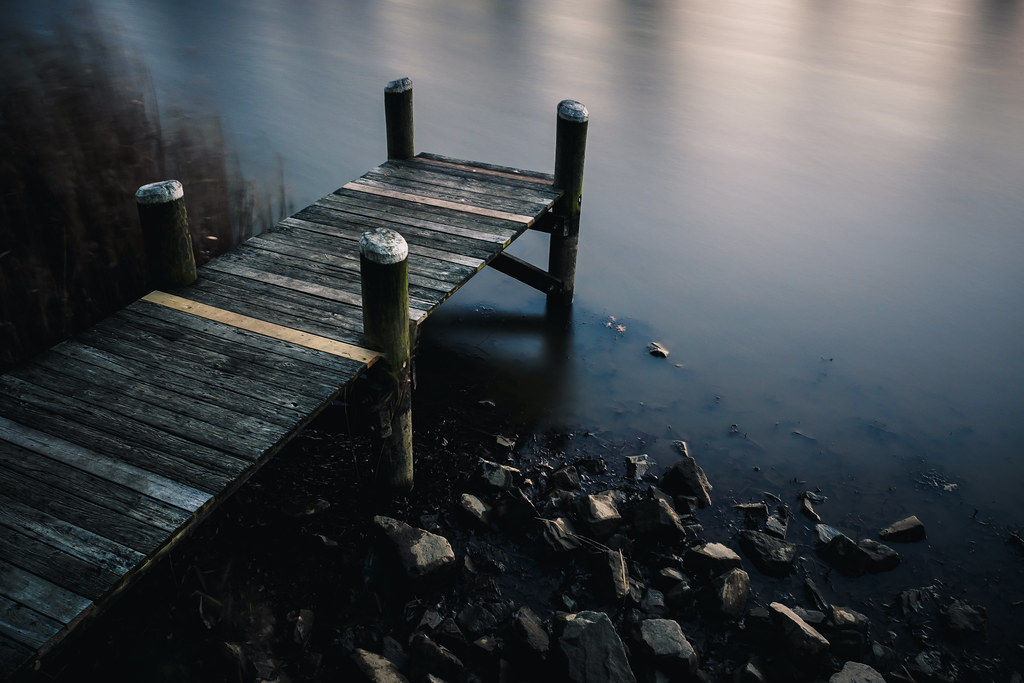 |
| Olympus OMD E-M1 with 12-40mm f/2.8, 25" at 15mm, f/4.0 and ISO 200. |
Early last month I made statements regarding how to maintain a more positive mood during the Winter months, waking up early and catching sunrise on the regular, and I've done a piss poor job in the past week of adhering to that regimine. Predictably, my mood and emotional health are suffering for it. Weird issue I didn't foresee at the time, the sun is taking too long to rise right now - I'm getting up plenty early, but the sun never makes it over the horizon before I need to be at work. So... okay, sorry, my theoretical methodology is not as foolproof as I thought. Still, I have been up to things, just not in the past 4 days (which have been quite excruciating, and political cycle seepage at the office hasn't made coping easier).
The biggest thing I've been invested in so far as creative pursuits are concerned are long exposures in daylight and composite images to stack subsequent exposures for an even longer exposure sort of effect. It's been an addiction since picking up my B&W 10-stop ND filter a few months ago, and after experimenting with minutes-long bulb exposures using the big stopper I've transitioned to stacking shorter exposures in either Olympus' Live Composite shooting mode feature on the E-M1 or stacking exposures in Photoshop by stacking aligned layers as smart objects and calculating the mean exposure for each. All methods produce great results, and it only makes sense how much I'd enjoy daylight long exposures considering the affinity I've always had for similarly long exposures at night in years past.
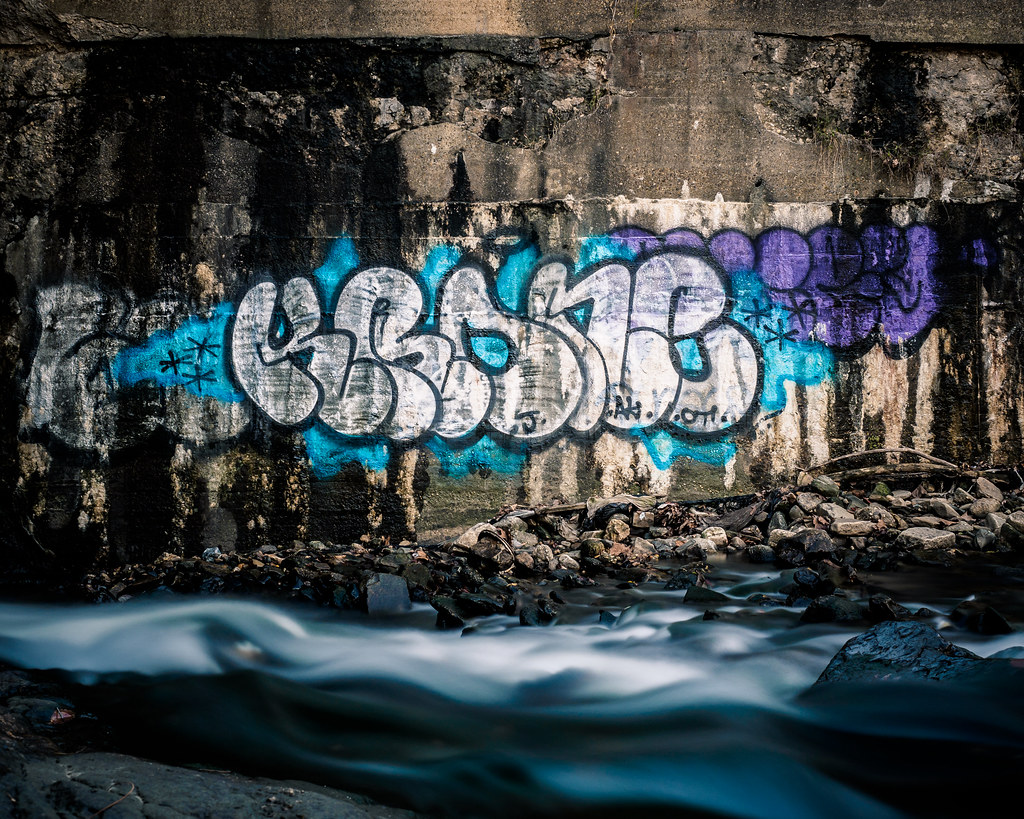 |
| Olympus OMD E-M1 with 12-40mm f/2.8, 20" at 24mm, f/5.6 and ISO 200. |
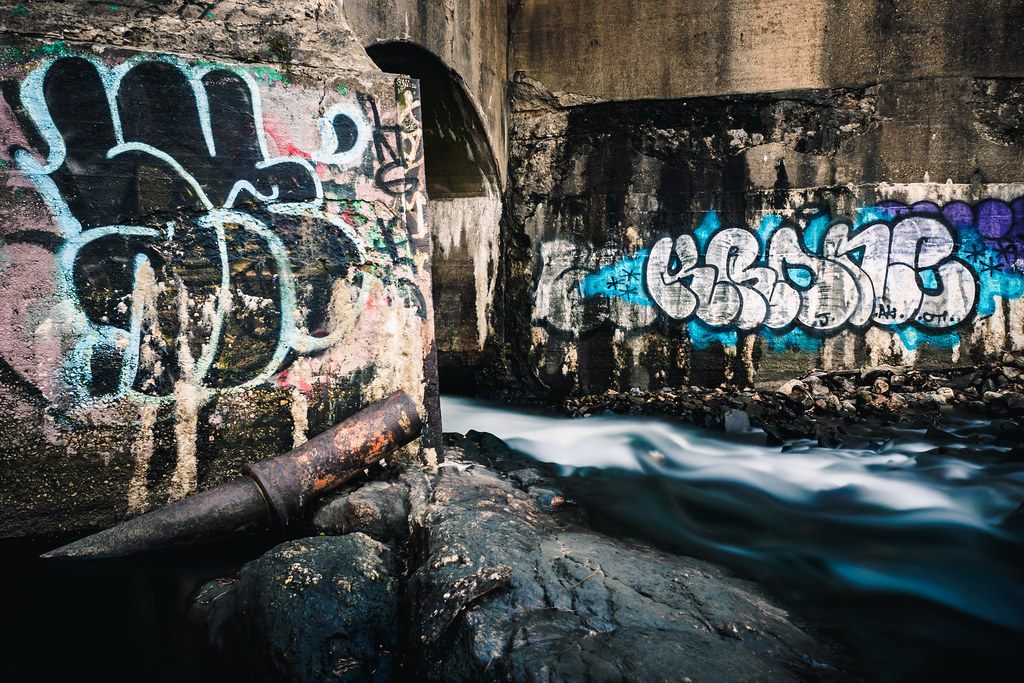 |
| Olympus OMD E-M1 with 12-40mm f/2.8, 25" at 15mm, f/5.6 and ISO 200. |
It's a time consuming process, but one that reminds me very much of the time lapse work I buried my head into last year. Takes a lot of determined motivation to get off the ground at all, and each shot takes considerable time to build. Whether processing the image in Photoshop into a composite or running the composite live in-camera, that's probably the best verb that could be used to describe this long exposure process, "build". It's interesting to see how light shapes the scene as it changes, and by being selective about which frames of light are allowed to show in a given area of the image it's possible to surreally portray every element in only the phase of light that suits it best. As much an analysis of the effect of time as a visual art form.
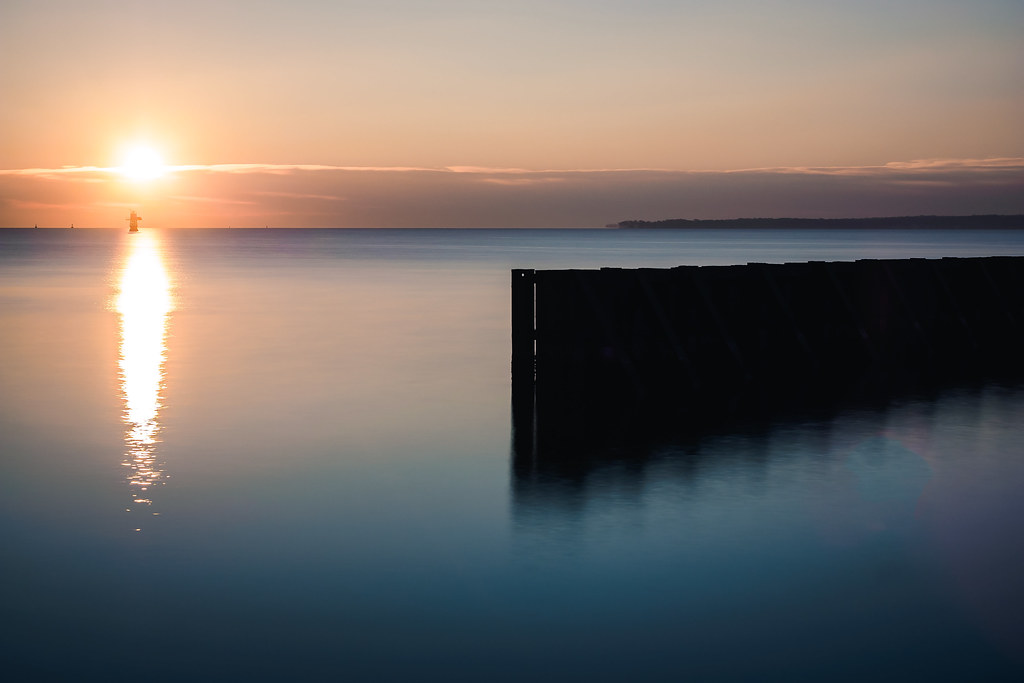 |
| Olympus OMD E-M1 with 12-40mm f/2.8, 4" at 31mm, f/5.6 and ISO 200. |
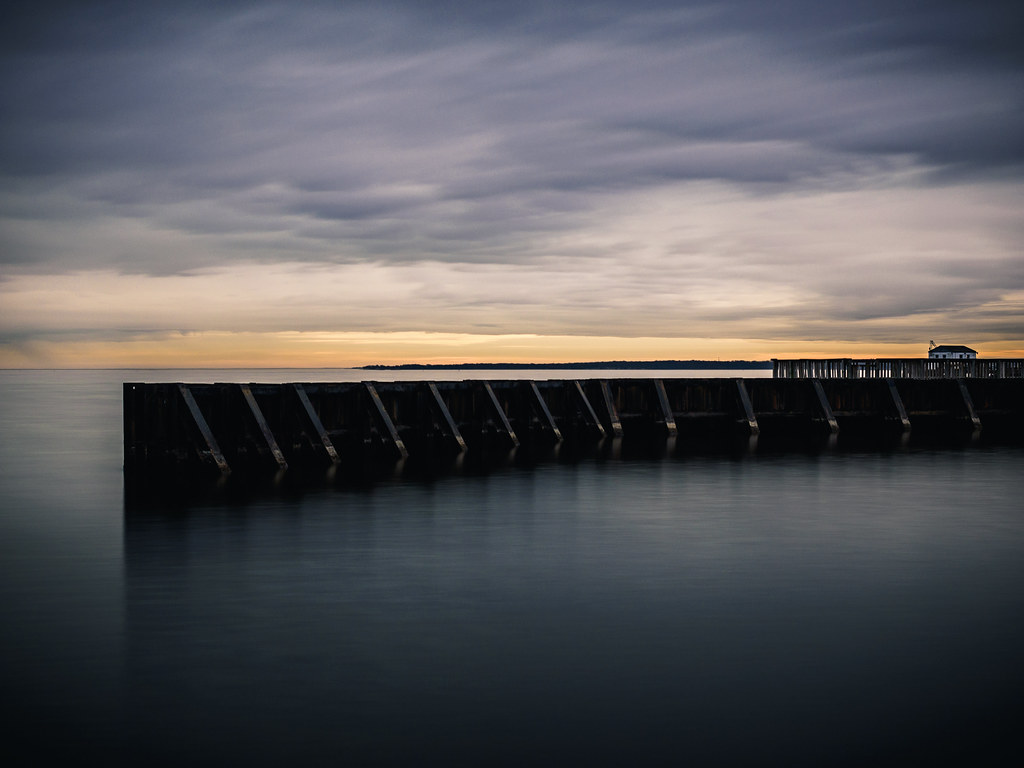 |
| Olympus OMD E-M1 with 12-40mm f/2.8, 4" at 27mm, f/4.0 and ISO 200. |
Wednesday, December 2, 2015
Rumor Mill Speculation
There is an inordinate amount of buzz encircling the mirror-less photosphere at the moment given a credible rumor that Samsung's quiet (but not-so-quiet) exit from the camera business is due to its acquisition by Nikon in effort to integrate their expertise in the mirrorless front in their own engineering portfolio. This... actually has me super jazzed.
Though not an early adopter, the form, fit, and feel of the Nikon V1, their first entry into the mirrorless ILC market, was too enticing not to buy into, and I doted with fond nostalgia on that camera in this blog in the past. It was a camera for experimentation, using its speed for unconventional attempts at the creation of something new. But as a conventional photographic tool, it was cumbersome. No need to elaborate on that fact, really... there are plenty of reviews out there detailing the misery of menu diving and poor button/dial placement.
That said, I sold the camera around this time last year and have regretted the decision every single day since.
Part of the appeal of Nikon is in the quality, the look of its RAW files (and no, not all RAW files are created equal). Like flat color and tonal profiles for video, they provide the ultimate canvas upon which values can be stretched and torqued and manipulated into a preconceived vision. That quality was present in the meager 10 megapixel files of the V1, and I absolutely anticipate it to be present in the whatever-sized files of a pending future Nikon mirrorless release using Samsung's sensor technology. Because that's the big technological acquisition here, the sensor tech.
Samsung's attempt to push into the extant camera market was noble and well executed, but jingoism in market (the American market, especially) proved too tall a hurdle for the company to overcome. And aside from Canon, they were the only company willing to put forth the investment required to develop all technology in-house, from sensors to optics to interfaces. That their investment did not pan out commercially is unfortunate, but the acquisition of their technology and expertise by a brand as lauded in the annals of photographic history as Nikon should speak to the respectable competency of their technology. Samsung sensors are great, and the only realistic alternative to Sony's monopoly on the commercial imaging sensor market. Their optical prowess is equally laudable, as well as their understanding of how to strike the best balance between milled optical perfection and software based correction. Nikon may not necessarily need much support in the realm of optics as it applies to lens manufacture, but in lacking an established line of lenses supporting larger format mirrorless digital cameras, inheriting NX patents is an immediate lift. Barring the time necessary for production schedules, it wouldn't be unreasonable to see Nikon's take on the old NX line springing into stores by next Christmas.
This is an important shift because Sony has been the elephant in the room for too long, owning the majority of the imaging sensors used by the likes of Nikon, as well as Olympus and Sony's own brand of Alpha digital cameras, even cell phones market-wide. As it applies to the camera business, Sony and Nikon have had a strong partnership but Nikon will always be in the submissive position, the bleeding edge technologies consistently reserved for Sony's flagship models. With growing popularity among the mirrorless crowd in the A7R II, moving to a different sensor standard for their own reimagined mirrorless line is the best move Nikon could have possibly made, and after 7 years of innovative stagnation I once again have hope in the potential of future Nikon releases.
I wouldn't presume to predict Nikon's next moves, but I certainly know what I'd like to see from them from both product and market standpoints:
Though not an early adopter, the form, fit, and feel of the Nikon V1, their first entry into the mirrorless ILC market, was too enticing not to buy into, and I doted with fond nostalgia on that camera in this blog in the past. It was a camera for experimentation, using its speed for unconventional attempts at the creation of something new. But as a conventional photographic tool, it was cumbersome. No need to elaborate on that fact, really... there are plenty of reviews out there detailing the misery of menu diving and poor button/dial placement.
That said, I sold the camera around this time last year and have regretted the decision every single day since.
Part of the appeal of Nikon is in the quality, the look of its RAW files (and no, not all RAW files are created equal). Like flat color and tonal profiles for video, they provide the ultimate canvas upon which values can be stretched and torqued and manipulated into a preconceived vision. That quality was present in the meager 10 megapixel files of the V1, and I absolutely anticipate it to be present in the whatever-sized files of a pending future Nikon mirrorless release using Samsung's sensor technology. Because that's the big technological acquisition here, the sensor tech.
Samsung's attempt to push into the extant camera market was noble and well executed, but jingoism in market (the American market, especially) proved too tall a hurdle for the company to overcome. And aside from Canon, they were the only company willing to put forth the investment required to develop all technology in-house, from sensors to optics to interfaces. That their investment did not pan out commercially is unfortunate, but the acquisition of their technology and expertise by a brand as lauded in the annals of photographic history as Nikon should speak to the respectable competency of their technology. Samsung sensors are great, and the only realistic alternative to Sony's monopoly on the commercial imaging sensor market. Their optical prowess is equally laudable, as well as their understanding of how to strike the best balance between milled optical perfection and software based correction. Nikon may not necessarily need much support in the realm of optics as it applies to lens manufacture, but in lacking an established line of lenses supporting larger format mirrorless digital cameras, inheriting NX patents is an immediate lift. Barring the time necessary for production schedules, it wouldn't be unreasonable to see Nikon's take on the old NX line springing into stores by next Christmas.
This is an important shift because Sony has been the elephant in the room for too long, owning the majority of the imaging sensors used by the likes of Nikon, as well as Olympus and Sony's own brand of Alpha digital cameras, even cell phones market-wide. As it applies to the camera business, Sony and Nikon have had a strong partnership but Nikon will always be in the submissive position, the bleeding edge technologies consistently reserved for Sony's flagship models. With growing popularity among the mirrorless crowd in the A7R II, moving to a different sensor standard for their own reimagined mirrorless line is the best move Nikon could have possibly made, and after 7 years of innovative stagnation I once again have hope in the potential of future Nikon releases.
I wouldn't presume to predict Nikon's next moves, but I certainly know what I'd like to see from them from both product and market standpoints:
- A diminishment in tiers of DSLR models. There are so many redundant middle-ground models being released in ill-fated attempts to recapture the long lost market of compact camera buyer sales volumes that the flood of nearly identical models released year after year have super saturated the camera market and driven the value of all cameras to insane lows. While good for consumers on the short term in the form of alarmingly cheap used prices, when the company making the cameras is no longer earning revenue from new camera sales due to used camera sales volumes, innovative progress grinds to a halt, which is what we've seen play out for the past 10 years in excruciating slow-motion.
- Presuming the release of a new mirrorless system, should sales of that system exceed sales of new entry-grade DSLRs (which I absolutely anticipate they will if the mirrorless model is not artificially hamstringed as Nikon and Canon have both done in past mirrorless releases), I expect Nikon to take the active, market affirmative approach of diminishing their lower tier DSLR offerings and supplant them readily with their mirrorless evolutions (because evolution of the imaging system is ultimately what the strong wave pushing toward mirrorless has always been about).
- From a product design standpoint, the original, impulsive design tendency toward super tiny models has finally reached the point of faux pax. Yes, our hands are only ever so small on average, and yes, it's nice to have something sizable to hold onto in regards to cameras. So, perhaps, given old guard worries of things like flange distance, it is not unreasonable to design a mirrorless camera retaining the same flange distance as conventional mirror-equipped DSLRs? This design choice would allow for the legacy of the F-mount to continue uninterrupted, and the afforded "empty space" in body design would actually be quite ideal for the integration of sensor cooling technologies which are of extremely high demand to video enthusiasts (and video competency is a huge asset inherited from Samsung). More so, sensor cooling technologies would enable previously unexplored potential in exposure length in mirrorless systems, as well as afford benefits to high-ISO applications by dissipating the heat which contributes to poor SNR. (Plus, there's always the aesthetic aspect of keeping that genuine DSLR look and feel while simultaneously integrating newer technologies)
Personally, I'm excited. It would be dangerous to get my hopes of too high given the consistent history of godawful disappointments coming from CaNikon struggling to maintain hold on a market that left them behind a decade ago, but this acquisition was not a cheap move and I fully expect that if Nikon were willing to put their necks out far enough to put money down on Samsung's imaging division that maybe, just maybe, they won't foolishly hinder their own engineers and designers trying to bring forth the next generation of Nikon camera (as if there were anything left to cannibalize from the former).
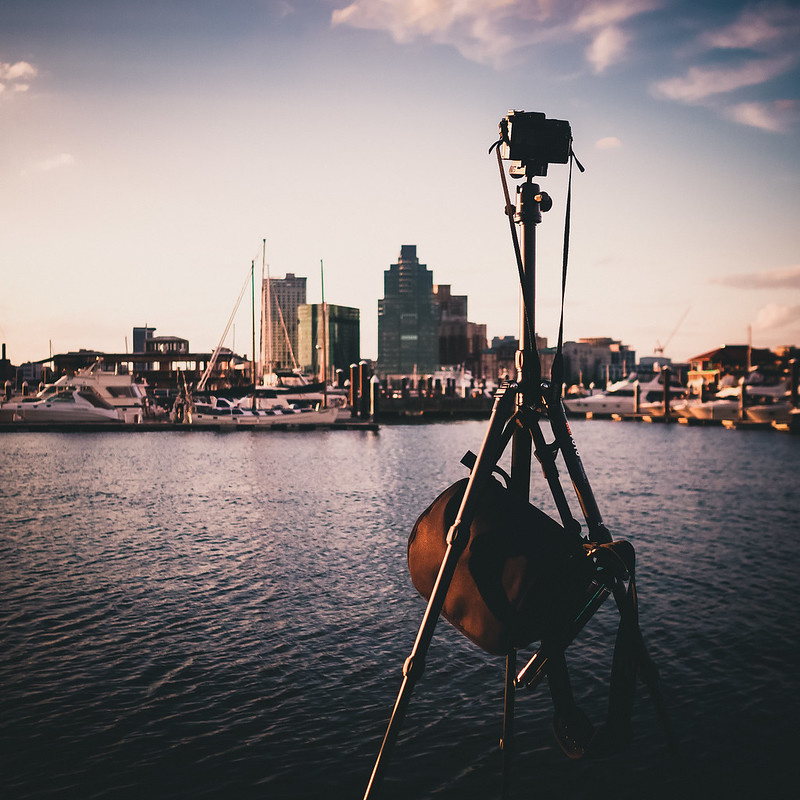 |
| Nikon V1 running time lapse capture over Baltimore's Inner Harbor. |
Tuesday, December 1, 2015
The Consequences of Overcoming "Jack of All Trades" Syndrome
Back in the high school days and even for a couple years after, I would never have called myself a photographer, at least not in the traditional sense. I was all about the multi-media bandwagon, dabbling in equal parts with web design, illustration, animation, interfaces, you name it I was probably doing it. Not well, mind you... that period I recall frequently lamenting on my multi-media discipline and getting extremely down on myself for being moderately versed in so many creative media but not really grasping any of them to the high tier levels of those people whose work in that media I admired. So, eventually, I chose to specialize.
I'm not really sure why I picked photography to specialize in these days. Maybe because it was the newest media to me at the time, thus my enthusiasm in the exploration of new media paired with the determination to focus my skill in that media beyond just an amateur level built into super-massive momentum. I've been down on myself the past couple days, so my mounting fear is that on some subconscious level I chose photography because I perceived it as the easiest media to attain a high level grasp on (which both belittles photography as a medium and insinuates that I am inherently lazy, fulfilling the function of depression in devaluing what is important to me). Following that train of thought, I find myself pensive regarding the other forms of creative expression, of art, I ultimately let go of to achieve success in photography.
Last night my dreams dragged me all the way back to high school drama club (or Dionysus Club, as we young hipster high brows accepted for its namesake). Stage acting was enormously fun, and from all I can glean from the experience and coverage of the plays I participated in (biased of course... it was high school, we were all kids), I was pretty good at acting. But of course I never applied myself, dedicated myself to the art form - I was a multimedia kid, the idea was to do everything in dabbles, never to dedicate to the perfection of a single art. And that's exactly what came out of the dream. I was in a male supporting role whose monologue opened the show, but when opening night came I had to pull the director aside and confess, "Sir, I've been so busy with other projects that it is just now occurring to me that I have never even looked at this script once. I have no idea who my character is. I have no idea what my lines are."
(This dream, diving down into the Inception levels of subconscious thought, may very well tie beautifully into the thoughts rousing my brain just before I fell asleep last night, namely the sense that I'm not really confident I know what I'm doing in life outside the ritual grind of routine, and the maddening realization that on a long enough timeline absolutely everything becomes just that... routine.)
I suspect the prediction of ultimate failure played out in the dream relates to recent graphic design projects I've had fall into my lap. Another of the coveted arts sacrificed in my mad focus on photography was illustration, which in and of itself was split into multiple sub genres such as vector art, traditional pen-and-ink, and digital painting. Those lacking in creative skill sets still perceive me as a reliable talent in illustrative media, and so I get logo design projects tossed my way once in awhile. It's entirely my own fault because for a period when first concepting my photography business it seemed a grand idea to composite it with greater digital design offerings, namely graphics and multimedia. This was before I understood that I was no longer, realistically, a multimedia artist, and well before I realized, for the first time in any concrete sense, that I'm not so sure I really want to be considered a multimedia artist anymore (which is actually the thought I'm exploring via this blog post for the first time, oddly...).
At the office, I've had random assignments to produce graphics and animation, but for the most part the potential of that work has been limited by the software available to produce it (PowerPoint and Publisher), so of course it's impressive to people who wouldn't otherwise know how to draw custom vector paths and understand compositional concepts of balance and color theory. Privately, I've had a few clients requesting logos, which I cobble together in Inkscape and wonder how the work was ever considered passable. More important than the lack of value I perceive in the work itself, however, is how much I simply don't enjoy doing it. And that is a weird thing to me. Once upon a time, any work in any artistic media seemed like the Holy Grail of assignments. Now, my lack of enthusiasm for the media is akin to my lack of enthusiasm about remembering lines from a script. It's not my art anymore.
I miss dabbling in other media the way I used to, but in practice I don't find enjoyment in those abandoned disciplines. My partner theorizes this may be a facet of having attained success with one discipline, that having reached a point of competitive competence in photography has made the prospect of engaging a task in which I'm effectively starting at or near the bottom unattractive. That actually makes a lot of sense as it applies to my personality, as I've always had an unfortunate tendency to compare my work to the work of others in a never ending quest to devalue my efforts at expression. Having refined a form of expression past the comparative value threshold, why would I engage forms of expression still stalled out at personally devalued levels of skill? How important to me is it to try and grapple with these other forms of expression and refine them past the comparative value threshold reached in photography? Would it be more valuable to invest that time refining photography further into stratospheric levels of skill?
My position feels awkward. While I appreciate the broader perspective afforded by the Jack of All Trades approach to the arts, it's frustrating to then pare that skills portfolio down in the eyes of business clients and to the self (especially when one has a propensity for saying "yes" to every job, no matter how hot the "NO" may be boiling deep down). There is also nostalgic lament for the paths not taken, as I could just as easily have refined illustration as photography and the curiosity surrounding where that road would have gone is palpable. I'm reluctant to completely abandon the inroads made on other creative skill sets, but at the same time I do not actively refine them, thus I am effectively a hoarder of uselessly imperfect talents. Worse, I'm lazy for not refining other skills just because success in one has created a warm blanket of complacency. Worse than that...
...
... I think I'm coming to understand the magnitude of my problem with relaxing because, holy crap, reading through that entire paragraph exudes other deep seated issues from whose resolution I would greatly benefit. Is it the nature of the hopeless creative to never find any contentment or satisfaction, ever, from anything?
Pardon me while I go think on my mental state over coffee.
I'm not really sure why I picked photography to specialize in these days. Maybe because it was the newest media to me at the time, thus my enthusiasm in the exploration of new media paired with the determination to focus my skill in that media beyond just an amateur level built into super-massive momentum. I've been down on myself the past couple days, so my mounting fear is that on some subconscious level I chose photography because I perceived it as the easiest media to attain a high level grasp on (which both belittles photography as a medium and insinuates that I am inherently lazy, fulfilling the function of depression in devaluing what is important to me). Following that train of thought, I find myself pensive regarding the other forms of creative expression, of art, I ultimately let go of to achieve success in photography.
Last night my dreams dragged me all the way back to high school drama club (or Dionysus Club, as we young hipster high brows accepted for its namesake). Stage acting was enormously fun, and from all I can glean from the experience and coverage of the plays I participated in (biased of course... it was high school, we were all kids), I was pretty good at acting. But of course I never applied myself, dedicated myself to the art form - I was a multimedia kid, the idea was to do everything in dabbles, never to dedicate to the perfection of a single art. And that's exactly what came out of the dream. I was in a male supporting role whose monologue opened the show, but when opening night came I had to pull the director aside and confess, "Sir, I've been so busy with other projects that it is just now occurring to me that I have never even looked at this script once. I have no idea who my character is. I have no idea what my lines are."
(This dream, diving down into the Inception levels of subconscious thought, may very well tie beautifully into the thoughts rousing my brain just before I fell asleep last night, namely the sense that I'm not really confident I know what I'm doing in life outside the ritual grind of routine, and the maddening realization that on a long enough timeline absolutely everything becomes just that... routine.)
I suspect the prediction of ultimate failure played out in the dream relates to recent graphic design projects I've had fall into my lap. Another of the coveted arts sacrificed in my mad focus on photography was illustration, which in and of itself was split into multiple sub genres such as vector art, traditional pen-and-ink, and digital painting. Those lacking in creative skill sets still perceive me as a reliable talent in illustrative media, and so I get logo design projects tossed my way once in awhile. It's entirely my own fault because for a period when first concepting my photography business it seemed a grand idea to composite it with greater digital design offerings, namely graphics and multimedia. This was before I understood that I was no longer, realistically, a multimedia artist, and well before I realized, for the first time in any concrete sense, that I'm not so sure I really want to be considered a multimedia artist anymore (which is actually the thought I'm exploring via this blog post for the first time, oddly...).
At the office, I've had random assignments to produce graphics and animation, but for the most part the potential of that work has been limited by the software available to produce it (PowerPoint and Publisher), so of course it's impressive to people who wouldn't otherwise know how to draw custom vector paths and understand compositional concepts of balance and color theory. Privately, I've had a few clients requesting logos, which I cobble together in Inkscape and wonder how the work was ever considered passable. More important than the lack of value I perceive in the work itself, however, is how much I simply don't enjoy doing it. And that is a weird thing to me. Once upon a time, any work in any artistic media seemed like the Holy Grail of assignments. Now, my lack of enthusiasm for the media is akin to my lack of enthusiasm about remembering lines from a script. It's not my art anymore.
I miss dabbling in other media the way I used to, but in practice I don't find enjoyment in those abandoned disciplines. My partner theorizes this may be a facet of having attained success with one discipline, that having reached a point of competitive competence in photography has made the prospect of engaging a task in which I'm effectively starting at or near the bottom unattractive. That actually makes a lot of sense as it applies to my personality, as I've always had an unfortunate tendency to compare my work to the work of others in a never ending quest to devalue my efforts at expression. Having refined a form of expression past the comparative value threshold, why would I engage forms of expression still stalled out at personally devalued levels of skill? How important to me is it to try and grapple with these other forms of expression and refine them past the comparative value threshold reached in photography? Would it be more valuable to invest that time refining photography further into stratospheric levels of skill?
My position feels awkward. While I appreciate the broader perspective afforded by the Jack of All Trades approach to the arts, it's frustrating to then pare that skills portfolio down in the eyes of business clients and to the self (especially when one has a propensity for saying "yes" to every job, no matter how hot the "NO" may be boiling deep down). There is also nostalgic lament for the paths not taken, as I could just as easily have refined illustration as photography and the curiosity surrounding where that road would have gone is palpable. I'm reluctant to completely abandon the inroads made on other creative skill sets, but at the same time I do not actively refine them, thus I am effectively a hoarder of uselessly imperfect talents. Worse, I'm lazy for not refining other skills just because success in one has created a warm blanket of complacency. Worse than that...
...
... I think I'm coming to understand the magnitude of my problem with relaxing because, holy crap, reading through that entire paragraph exudes other deep seated issues from whose resolution I would greatly benefit. Is it the nature of the hopeless creative to never find any contentment or satisfaction, ever, from anything?
Pardon me while I go think on my mental state over coffee.
Subscribe to:
Posts (Atom)

